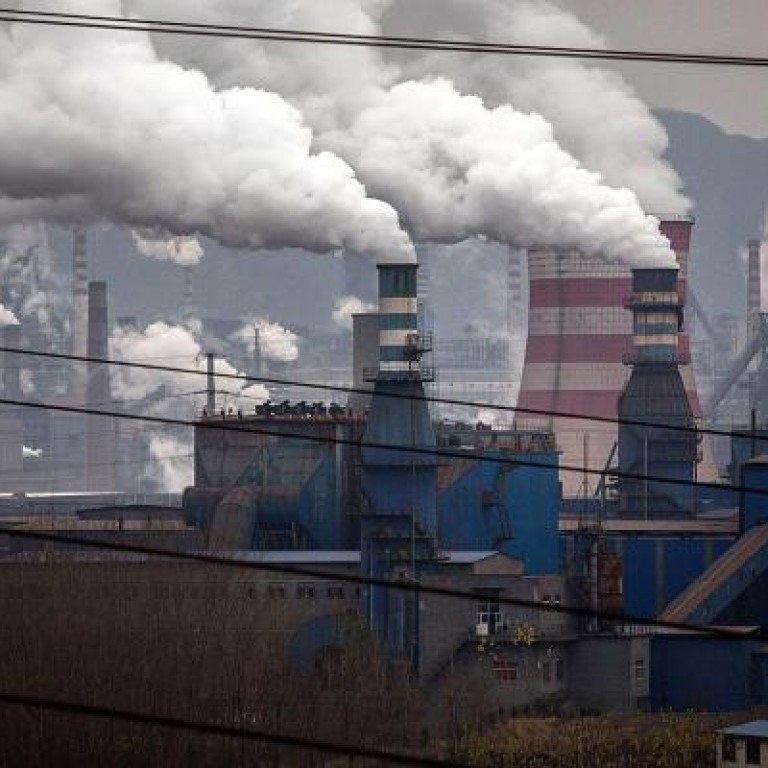
The costs of carbon cuts? 'Mass starvation, poverty and strife' according to scientist
'Everyone assumes that every change is for the worse, but we are starting to find upsides' says Cambridge professor
The world's historic effort to reduce carbon emissions is likely to be a costly if not quixotic endeavor, according to one expert, whose recently published research warns that decarbonising the globe could have devastating consequences on the world's way of life.
In a report published this week, the International Energy Agency issued a call for "concrete action" to match the ambitions of last year's landmark climate change agreement, which was recently ratified by nearly 200 countries. The energy watchdog said the transition to a low-carbon future would require "massive changes in the energy system" to prevent the globe's temperature from rising by more than 2 degrees Celsius.
Yet the agency also put a steep price tag on efforts to combat climate change. In order to decarbonize the power sector within the next 40 years, the world would have to invest at least US$9 trillion — and an additional US$6.4 trillion to make other industries more environmentally friendly.
Those vast sums are why M.J. Kelly, a University of Cambridge engineering professor, recently wrote that the push to restrict carbon "is set to fail comprehensively in meeting its avowed target, and a new debate is needed." For that reason, Kelly is skeptical that initiatives like the 21st Conference of the Parties (COP21) in Paris will achieve its lofty goals.
In peer-reviewed research, Kelly argued carbon dioxide should be considered the byproduct of the "immense benefits" of a technologically advanced society. Cutting carbon, he added, could result in a dramatic reduction in the world's quality of life that would usher in mass starvation, poverty and civil strife. Massive decarbonisation is "only possible if we wish to see large parts of the population die from starvation, destitution or violence in the absence of enough low-carbon energy to sustain society."
COP21 "will be an irrelevance within a few years," Kelly insists, "as the bills pile up, and ... the promises are reneged upon."
Wholesale removal of carbon from the atmosphere "is simply impossible over the next 20 years unless the trend of a growing number who succeed to improve their lot is stalled by rich and middle-class people downgrading their own standard of living," Kelly said. He added that "humanity is owed a serious investigation of how we have gone so far with the decarbonisation project without a serious challenge in terms of engineering reality."
Unlike those frequently called climate skeptics, Kelly in fact accepts the findings of the Intergovernmental Panel on Climate Change, or IPCC, in 2014 that human-generated CO2 has been responsible for more than half the globe's warming since 1950. The scientist's primary points are rooted in arguments that are equal parts economic and scientific.
"There needs to be a renewed debate on the impacts" of higher carbon levels, Kelly says.
"Everyone assumes that every change is for the worse, but we are starting to find upsides" in carbon dioxide, he said. "The recent science is casting doubt on whether more CO2 is necessarily a bad thing."
Kelly's findings give added ammunition to a camp of scientific skeptics who contend CO2 has a beneficial impact on the environment. Last November, Indur Goklany, a U.S. Department of the Interior official and a former delegate to the IPCC, said policymakers need to reassess their aversion to carbon dioxide, which he said is a major factor in plant fertilization and boosting crop yields, among other benefits.
High levels of CO2 concentration have actually helped improve biosphere productivity by 14 percent over the last three decades, Goklany's research found.
In its report, the IEA singled out cities as integral to curbing energy use and carbon emissions. If current urban power trends continue, the agency said energy demand in cities would surge by 70 per cent from current levels, undercutting carbon restriction policies. "Hence, efforts aimed at fostering sustainable urban energy paths are crucial to meet national and global low-carbon ambitions," it said.
However, Cambridge's Kelly linked middle-class economic growth to soaring energy demand — the lion's share of which will continue to be met by fossil fuels. Recently, Exxon Mobil projected that those fuels will still provide 80 per cent of energy for at least the next two decades.
What that effectively mean, Kelly argued, is that rapid decarbonisation is a "glib" effort that would result in "large parts of the population [dying] from starvation, destitution or violence in the absence of enough low-carbon energy to sustain society."
The IEA supports technology like carbon capture and storage — which it contends can cut the cost of fighting CO2 emissions by 70 per cent — as well as alternative energy such as solar, wind and nuclear.
"The two largest contributions to cumulative emissions reductions ... over the period 2013-50 would come from end-use fuel and electricity efficiency (38 per cent) and renewables (32 per cent)," the energy watchdog said this week. "Carbon capture and storage (CCS) would come in third place with 12 per cent, followed by nuclear with 7 per cent."
Kelly, however, has his doubts. Renewable energy is not yet plentiful or potent enough to completely supplant fossil fuels, while atomic energy is fraught with risks and hamstrung by political resistance.
"Only [CCS] and nuclear have any scope to reduce CO2 emissions," the engineer says.

